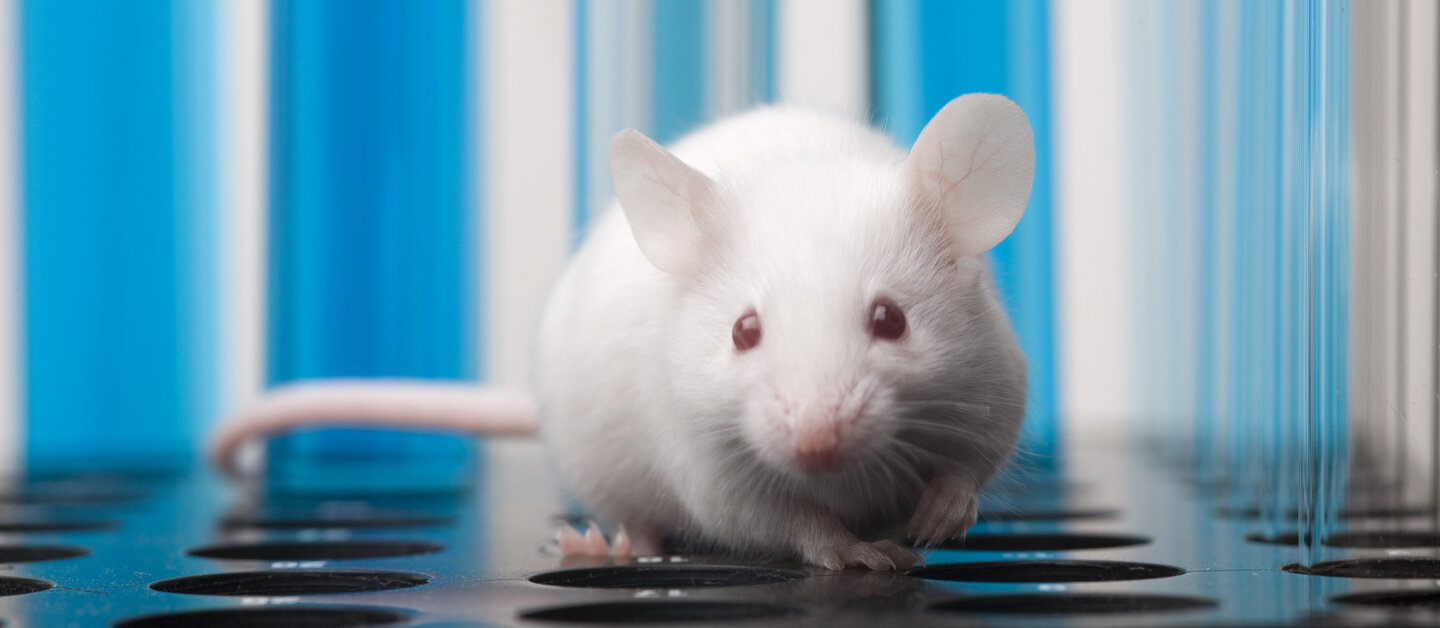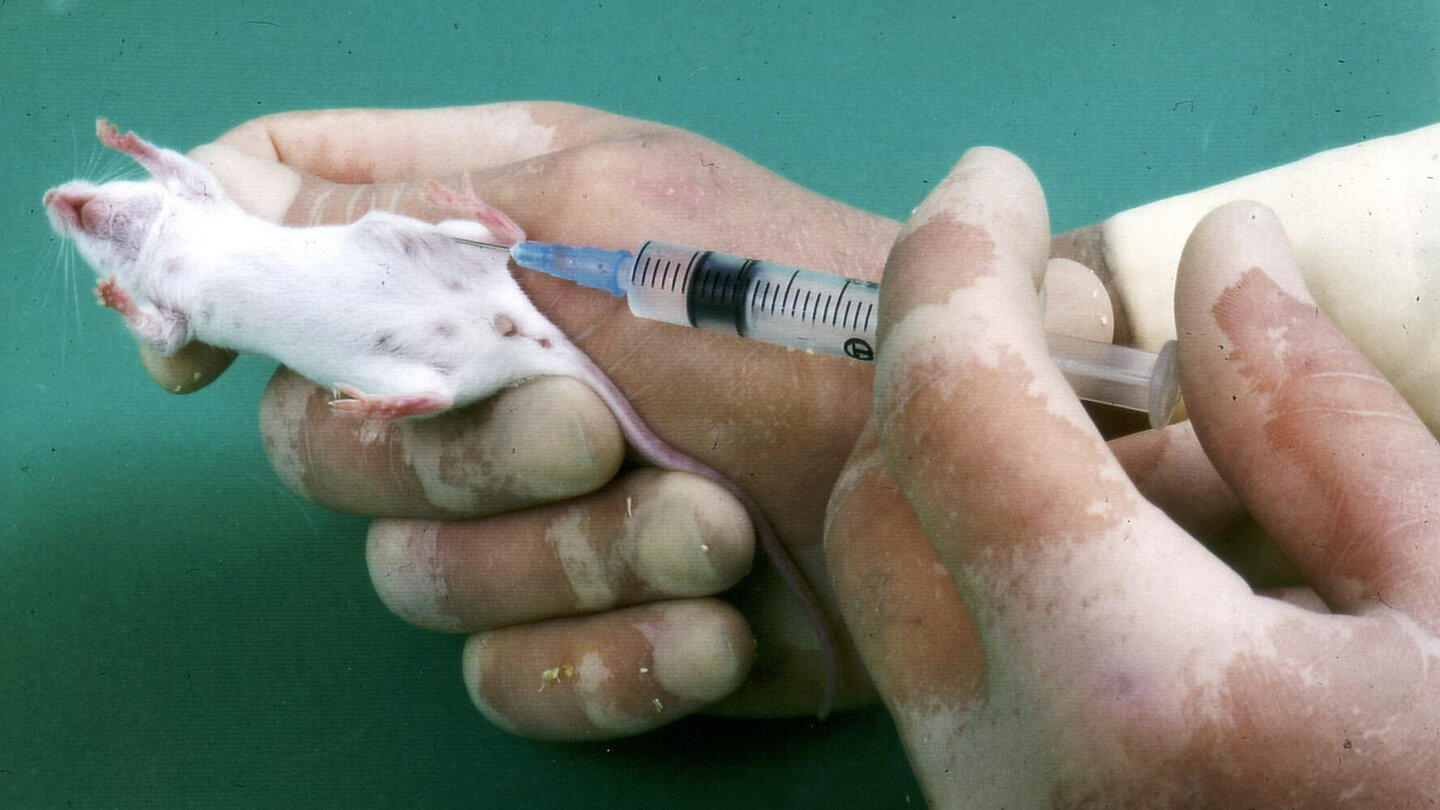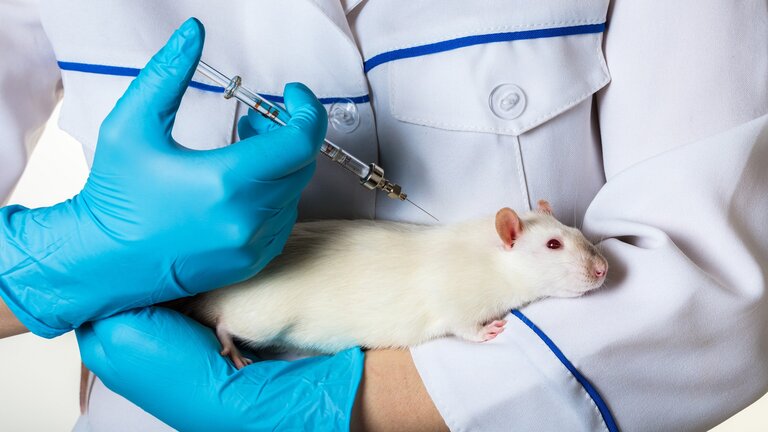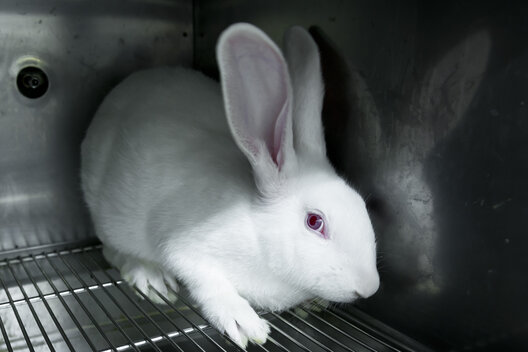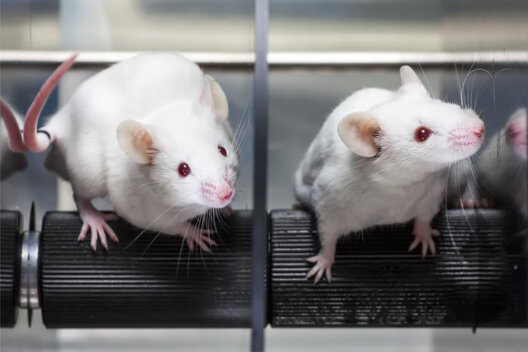What you should know about animal testingWhy are there still animal experiments?
Animal testing is part of everyday life in laboratories across Germany. Millions of animals suffer and die in the process, even though research is making immense progress in developing animal-free methods. We explain why animal testing still takes place, how it works and the massive suffering it causes.
What is animal testing?
The German Animal Welfare Act defines animal experiments as "interventions or treatments on animals if they can be associated with pain, suffering and harm." Millions of animals suffer and die in laboratories in Germany every year. This often happens on behalf of humans. But animals also feel pain and fear and suffer considerably in experiments. And this is often done purely to gain knowledge, without any foreseeable benefit or prospect of success. It is done in the name of research to gain knowledge about diseases or possible therapies that are supposedly relevant to humans, but also to test whether substances such as chemicals or medicines are harmful to humans or the environment, or in the training and teaching of young scientists. From an animal welfare perspective, it is ethically unjustifiable to do this to a living being who, like us, feels pain. But there are also scientific reasons against animal testing. Because:
Animal experiments are outdated, time-consuming, expensive and the results are often not transferable to humans.
Why is animal testing done?
Although more and more people in our society speak out against animal experiments, many politicians, government officials and even some researchers unfortunately accept them as allegedly unavoidable. They justify this by claiming that they are necessary for human health and safety or for scientific progress. It can be difficult for young scientists to break out of the existing structures in which animal experiments have become the gold-standard.
In addition, many animal experiments are still required by law in Germany and other countries, for example when companies want to bring drugs, chemicals, pesticides or genetically modified plants onto the market. Animal testing is then used to determine whether these new products could pose a risk to humans or the environment. Some of these animal experiments date back to the 1940s. They have never been verified to be a meaningful model for humans, animals and the environment.
In fact, 92 percent of drugs are not approved despite extensive preceding animal testing. For example, because animal tests do not reveal some of the harmful effects that certain drugs have on humans. The other way round, some drug candidates are also rejected due to causing harm in animals, even though they would have been effective and safe for humans.
Are animal experiments really necessary?
- Animal experiments are not carried out because they are better than other methods, but because they have a long tradition and because many researchers still believe that certain biological processes and effects of substances can only be seen and studied in a whole organism.
- In fact, the results from animal experiments are difficult to transfer to humans. This is because animals are different from humans. Their genetic code and the functionality of their metabolism differ from ours. Animals also do not naturally develop some human diseases, which is why they are artificially created in animals.
- Mice, rats, rabbits, monkeys, dogs and fish do not usually grow as old as we do, nor do they have an identical physique and metabolism. This is another reason why animal experiments do not bring the hoped-for breakthrough in the development of urgently needed therapies for diseases such as cancer, Alzheimer's and Parkinson's disease.
- Despite this, only around one percent of all animal testing proposals in Germany are rejected by the authorities. They usually have to approve whether the scientists have formally submitted their proposals correctly, justified the scientific benefit of the proposed project and explained why the animal experiment is ethically justifiable from their point of view.
- This is because, according to the legal regulations in Germany, the authorities cannot independently assess a cost-benefit analysis of animal welfare issues and expected scientific benefit. This is why questionable experiments are repeatedly approved, such as experiments on drug or alcohol addiction or already long-lasting animal experiments that do not promise "success" in the near future. Beyond, there are already numerous modern, animal-free methods available.
Animal suffering in animal experiments
Monkey skulls are drilled and electrodes are introduced to provide insights into the functioning of the human brain. To test whether substances are hazardous, they are dripped into rabbit’s eyes, exposing them to potential corrosion. Rats are forced to eat new types of food for 90 days to examine the impact on their organs after their death. Mice that are intentionally bred to develop cancerous tumors also suffer in experiments. All these animals suffer pain and fear - for experiments of very uncertain scientific value.
Moreover, it is not only the animal experiments themselves that are painful for the animals. Their suffering often begins with their transport to the laboratories, their daily handling and the preparation of the animals for the experiments. In addition, laboratory animals are often housed in cages that are far too small to spend an entire life there, often without sufficient opportunities for species-specific activities and without being able to live their natural behaviors. In some cases, social animals such as monkeys are kept individually, isolated from their conspecifics. Many animals develop behavioral disorders or injure themselves. Genetically modified animals in particular suffer long before the actual experiments begin because the changes made to their genetic information make them ill. At the end of the experiments, most laboratory animals die.
How you can help
Find out about animal testing and the associated problems as well as about non-animal testing methods.
Educate your immediate environment about animal testing and modern, cruelty-free methods.
Try to live as healthily as possible. Many diseases can be avoided with a balanced diet, sufficient sleep and physical exercise, little stress and little or no stimulants such as tobacco or alcohol. In this way, everyone can contribute to having to use fewer medicines.
Avoid cleaning agents, pesticides and plant protection products wherever possible. Instead, you can use household remedies or natural methods.
Students can raise their concerns with their lecturers and work together to try to avoid dissecting animals, for example. Some universities already make it possible to study without using animals at all.
This is what the German Animal Welfare Federation demands
The German Animal Welfare Federation is committed to phasing out animal testing and replacing it with animal-free methods onthe long-term. We demand on the Federal Government to draw up a strategy to achieve this. Until these animal-free methods make animal experiments superfluous and they are completely abandoned, the government must at the very least promote and financially support the use of animal-free methods:
- Massively expand the promotion of animal-free methods.
- Immediately ban severely stressful animal experiments and experiments on non-human primates.
- Adapt the approval procedure for animal experiments. So far, there is no guarantee that every approved animal experiment has been comprehensively checked for indispensability and ethical justifiability.

